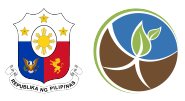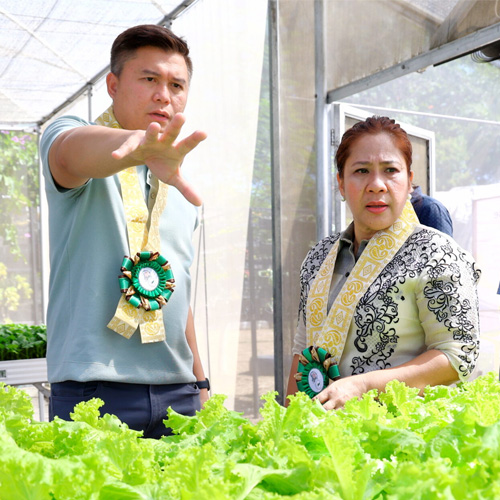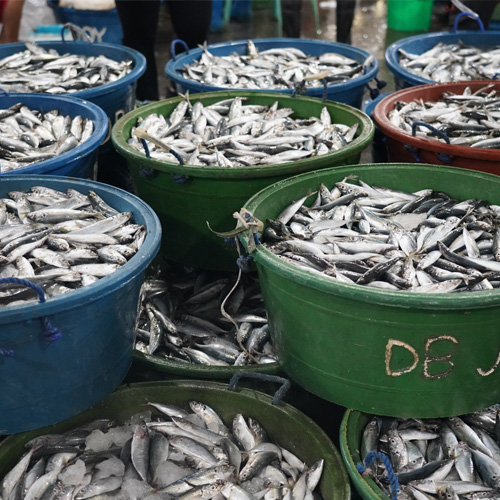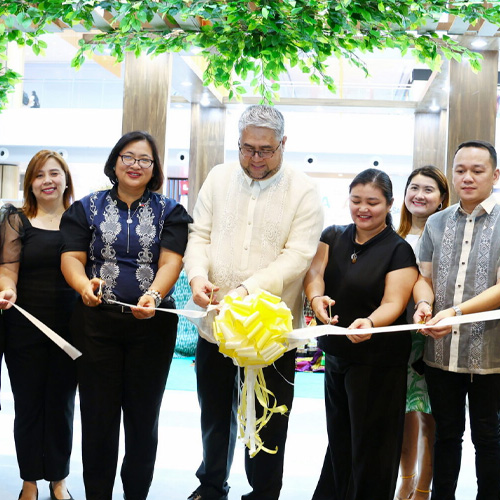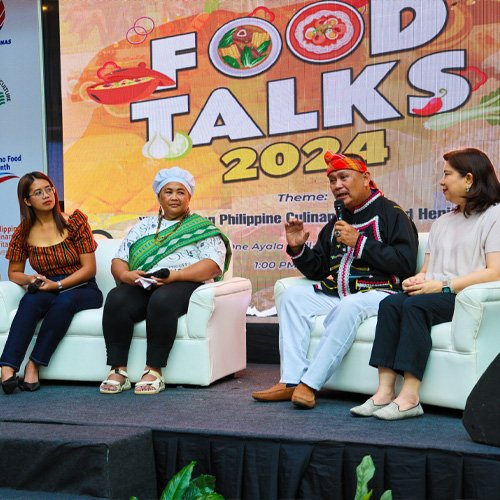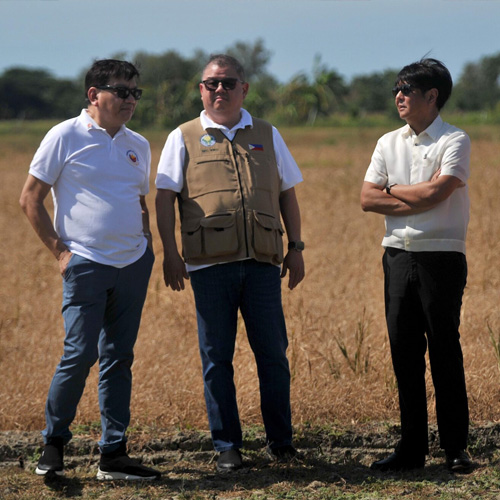Brief History, Current Status and General Directions of Organic Agriculture in the Philippines
Organic agriculture is a farming practice that relies on ecological processes, biodiversity and cycles adapted to the local conditions, rather than on the use of inputs that turn out adverse effects (IFOAM).
Similar to the experiences of many countries, natural farming was the prevalent farming practice in the Philippines prior to World War II. Conventional farming only became popular after WWII with the government-sponsored distribution of high yielding crop varieties that are dependent on imported synthetic agricultural inputs. With the realization of the adverse effects of chemicals to the natural environment and the health of the producers and consumers, natural farming, including organic agriculture, slowly gained popularity once again globally, including in the Philippines.
Several groups have championed the promotion of organic agriculture even before the enactment of the Organic Agriculture Act of 2010 (OA Act) in the Philippines. The joint efforts of many organic agriculture stakeholders, such as from the non-government organizations (NGOs), people’s organizations (POs), business sector, academe and policy makers led to the institutionalization of organic agriculture program in the country.
Executive Order No. 481 of 2005 was the first legal instrument that tackled organic agriculture in the Philippines. Republic Act 10068 institutionalized organic agriculture with the creation of the National Organic Agriculture Program, that is meant to promote, propagate, develop further and implement the practice of organic agriculture in the country (Sec.2, RA 10068). Republic Act 11511 amended RA 10068 in 2020 with the introduction of the Participatory Guarantee System (PGS) as an alternative organic certification system. It likewise established the National Organic Agriculture Program-National Program Coordinating Office (NOAP-NPCO) to manage the effective implementation of the Program and serve as the planning and administrative secretariat of the National Organic Agriculture Board (NOAB) (Sec. 10, RA 11511). In September 2021, the Department of Budget and Management approved the creation of the two divisions of the NOAP-NPCO and in March 2023, the President of the Philippines approved the creation of the position of the National Organic Agriculture Program Coordinator. Director Bernadette F. San Juan, CESO II is the current and first holder of the position.
The Bureau of Agriculture and Fisheries Standards (BAFS) maintains a registry of certified organic farms in the Philippines, which can be viewed on their website. It can be noticed that the total area with active certification is miniscule with only 1,073.66 hectares, as of September, 2023. However, the cumulative area that has been certified since 2011 is already over 7,000 hectares as of the same period (see table 1). This indicates that many organic farms have not renewed their certification, which is valid only for a year. This non-renewal of organic certification is mainly due to the tedious and costly process of third party certification. The situation brought the introduction of the PGS as an alternative organic certification system.
YEAR | AREA (hectares) | Number of Farm |
2011 | 63.39 | 3 |
2012 | 97 | 5 |
2013 | 180 | 6 |
2014 | 380.45 | 8 |
2015 | 1808.83 | 5 |
2016 | 2095.57 | 17 |
2017 | 98.06 | 26 |
2018 | 579.82 | 17 |
2019 | 635.03 | 32 |
2020 | 192.48 | 16 |
2021 | 41.16 | 8 |
2022 – 3rd party | 839.01 | 30 |
2022 – PGS | 42.8 | 50 |
2023 – 3rd party | 125.36 | 17 |
2023 – PGS | 99.2 | 102 |
TOTAL | 7,278.16 | 342 |
(Table 1)
In order to be accredited by the BAFS, a core PGS group needs five (5) farmer members and each farmer member shall undergo certification under the BAFS to ensure compliance with the Philippine National Standards for Organic Agriculture. A core PGS group may comprise farmers, NGOs, POs, consumers, the academe, and other sectors of the community. After the certification of the five (5) members of the core PGS group, the group will undergo group accreditation for the group to be issued an accreditation certificate by the BAFS. Members of the core PGS group will be receiving technical assistance and trainings from the Department of Agriculture (DA) Regional Field Offices and the Agricultural Training Institute, the certificate of accreditation is an attestation that the core PGS group have complied with the qualifications and standards for a fast, transparent and trust-worthy, and affordable organic certification.
Since the introduction of the PGS certification system in the Philippines, twelve (12) PGS groups have been granted accreditation (see table 2). Tublay Organic Farming Practitioners Agriculture Cooperative (TOFPA-COOP) was the first PGS group that was granted accreditation. All three major island groups already have accredited PGS certifying bodies (PGS-OCBs), with Region VIII having the most number of PGS-OCBs and the widest area of PGS certified organic farms. 42.8 hectares of agricultural land has been converted into organic certified farms during its initial year of implementation in 2022. And as of September 18, 2023, an additional 992,021 sqm or 99.2 hectares has been added to the area of organic certified farms in less than one year of implementation. Notwithstanding the foregoing, the NOAB is continuously looking for ways to make organic certification easier and cheaper for the majority of small hold farmers. By 2024, the BAFS targets to certify and accredit forty seven (47) core PGS groups nationwide.
# | Region | Name of PGS-OCB | Farm Size (in ha) |
1 | CAR | Tublay Organic Farming Practitioners Agriculture Cooperative (TOFPA-COOP) | 3.554 |
2 | VIII | One Samar Agro-Organic Practitioners Inc. (ONE-SAOP) | 6.1 |
3 | II | Kayapa PGS Group (KPGSG) | 0.4123 |
4 | IV-A | Samahan ng Organikong Industriya ng Laguna (SOIL) Agriculture Cooperative | 3.37 |
5 | VI | Aklan Provincial Organic Producers Association (APOPA) | 3.87 |
6 | VII | Organic Farmer-Practitioners Association of Bayawan City (OFPRAB) | 3.89 |
7 | VIII | Son of the Living God United Multi-Sectoral Farmers Association (SOULS-FA) | 0.63 |
8 | VIII | Catubig Organic Farmers Association (COFA) | 10.39 |
9 | X | Participatory Guarantee System Tatak Organik Kauswagan Farmers Association (PGS TOKFA) | 10.69 |
10 | CAR | Organic Participatory Guarantee System of La Trinidad (OPGSLT) | 0.52 |
11 | I | PGS Pangasinan Philippines Inc. (PPPI) | 11.19 |
12 | V | Pecuaria Development Cooperative (PDC) | 3.58 |
TOTAL | 58.19 | ||
(Table 2)
During the implementation of the PGS, some challenges faced by the farmers were the non-compliance in the crafting of operations manual and farm plans. The operations manual and farm plan are some of the requirements in the certification and accreditation of the PGS core groups. This non-compliance is mostly due to the lack of knowledge of the farmer applicants in developing the mentioned documents, thus causing delay in the certification and accreditation of the farmer members. Focals from the local government units (LGUs) and DA RFOs have been consistently providing their technical assistance to accommodate the needs and assist our farmer applicants in crafting their operations manual and farm plans.
Though the current certified organic area in the Philippines is small, this should not dissuade the country from pursuing organic agriculture. The potential area for organic certification is huge. The candidate areas include ancestral domains, which comprise about a fourth of the total land area of the country, as well as coconut areas, which is about 33% of the agricultural land of the country. It should be noted however that not all ancestral domains and coconut areas are classified as agricultural land.
Further, given that the Philippines has not been blessed with fossil fuels as a natural resource, farming in the Philippines cannot be truly sustainable if it will be forever reliant on imported agricultural inputs which are fuel based. Organic agriculture can serve as an insurance system for shocks, such as the exponential rise in prices of synthetic fertilizers. It will enable the Philippines to continue food production sans imported agricultural inputs.
Concerning income of farmers, organic farming should provide better incomes to farmers with lesser cost of production and premium prices of organic produce and products. Also, with the enactment of regulations prescribing organic certifications by importing countries, the exports of agricultural produce and products will be denied if Philippine produce will not be compliant to the importing countries’ regulations.
The National Organic Agriculture Program, through its NOAB-approved thrusts and priorities targets to expand certified OA areas thru accreditation of core PGS groups and organic certification of PGS group farmer-members to increase the number of certified organic farms and the volume of certified organic produce, provide consistent supply of certified organic inputs to target beneficiaries, enhance organized OA practitioners, and establish and maintain self-sufficiency through the supply of organic soil amendments, biocontrol agents and farm inputs.
In a move to fully institutionalize organic agriculture at the local level, the NOAB, through the NOAP-NPCO, is actively enjoining the LGUs to implement organic agriculture in their respective localities. The NOAP-NPCO has been conducting information caravan in various LGUs concerning their roles and responsibilities in the implementation of the OA Act, as embodied in the Joint Memorandum Circular 01 of 2022 between the DA and the Department of Interior and Local Government, as well as assisting the LGUs in the crafting of local ordinances that will institutionalize the practice of organic agriculture at the local levels.
